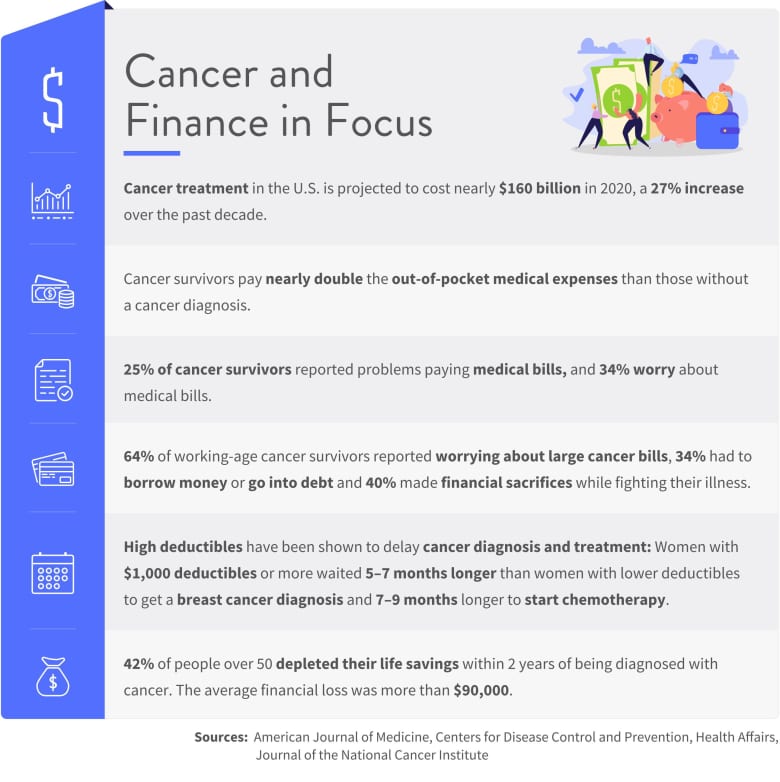When Rhonda Broussard got an invoice for part of her breast cancer treatment, she freaked out. "I didn't plan for this!" the New Orleans-based nonprofit founder and CEO recalled thinking. She had grown accustomed to getting proactive calls from her hospital, offering financial help and information before receiving any treatment. This invoice appeared with no warning. "I had planned for what I'm doing with my money this year," she explained. Unexpected medical bills had not been in her plan.
Though Broussard could absorb the bill, many cancer patients face financial challenges due to medical expenses, lost wages and other expenses such as child care, transportation and parking during treatment.
As medical debts pile up, housing insecurity grows. No one should have to face this kind of financial anxiety to keep their household afloat during cancer treatment, but many do.
This guide will help people with cancer and their advocates understand the financial support available to help ease seemingly insurmountable financial burdens.




